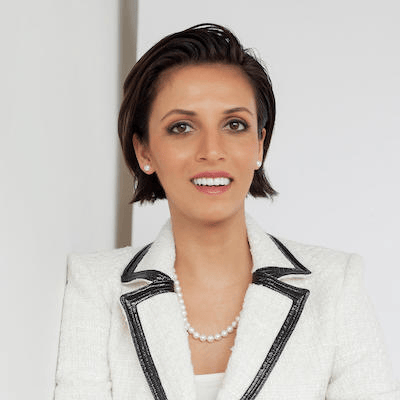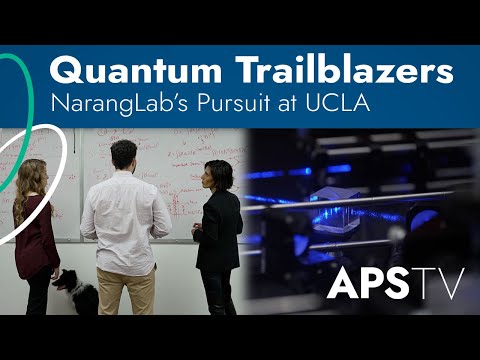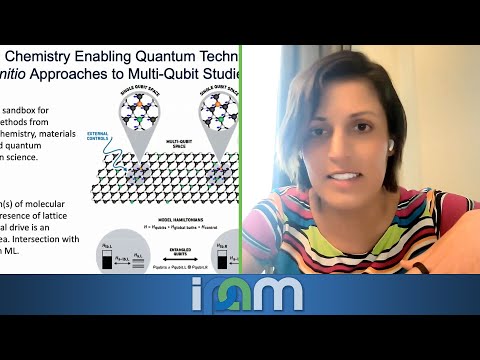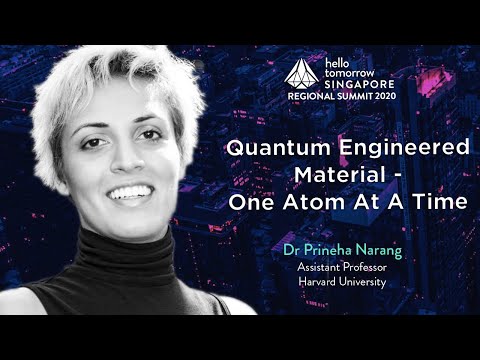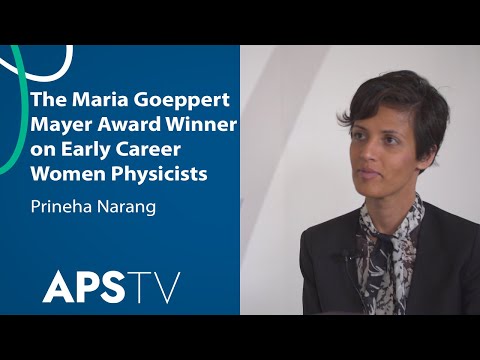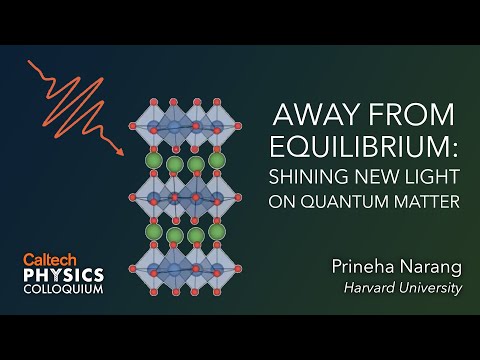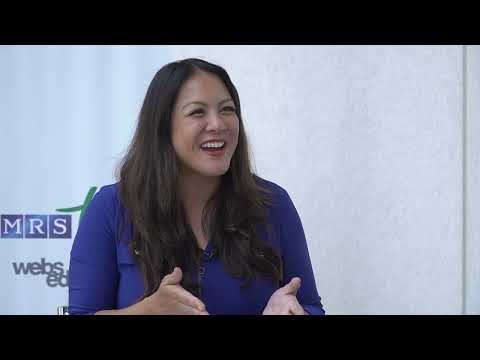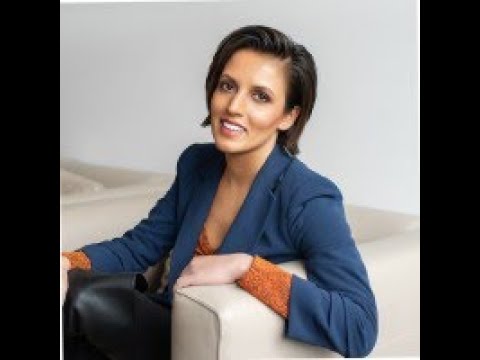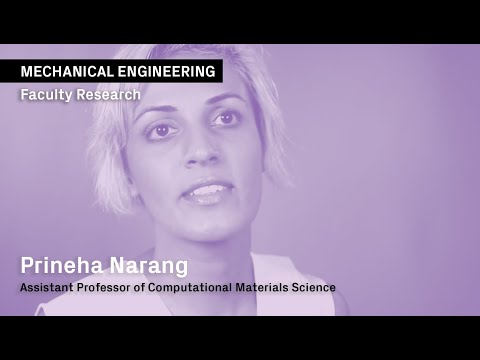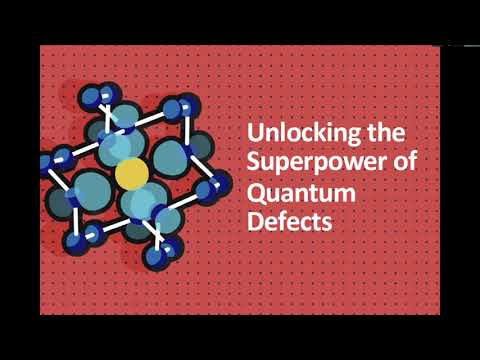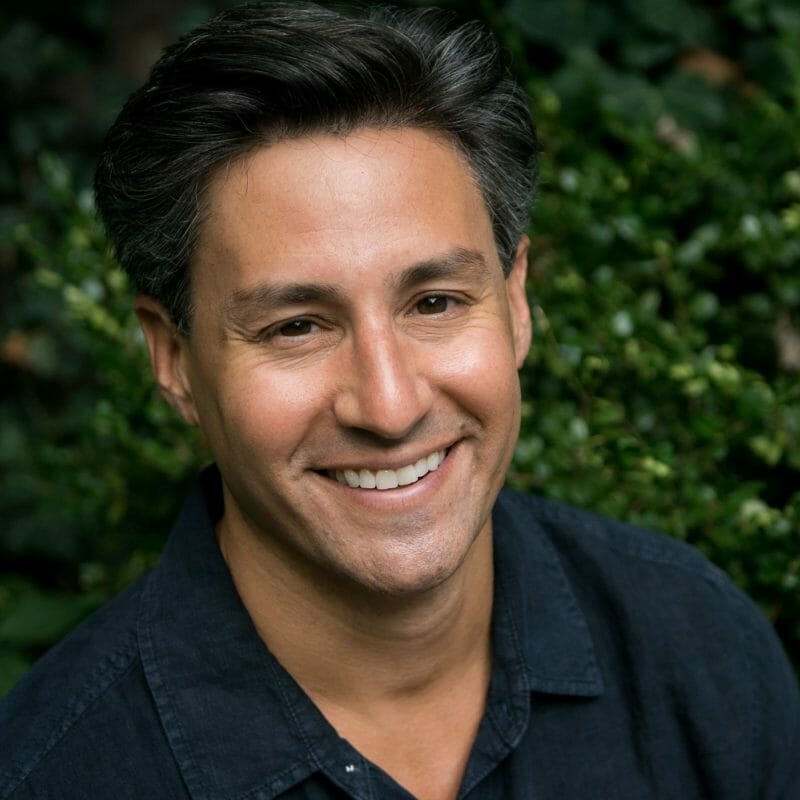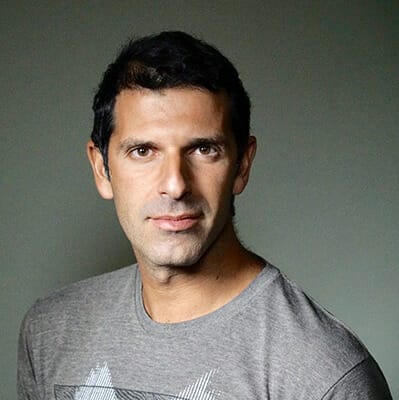Videos
Learn More About Prineha Narang
Quantum technologies are about to shift the paradigm of the entire computing world, ushering in a new era of communication and possibility. Why – and how – should leaders prepare for a quantum reality, today?
“Quantum will have a big role in bringing about the future of computing, networking, and sensing. I think we’ve only scratched the surface, and there’s still so much to do,” says Professor Prineha Narang, Ph.D., an award-winning quantum technology expert and the Howard Reiss Chair in Physical Sciences at the University of California, Los Angeles (UCLA). “Distributed quantum computing and connected quantum devices are starting to arrive on the market, and even companies that are traditionally viewed as risk-averse will say they have a team looking at quantum technologies. Organizations need to disrupt or be disrupted.”
Principal Investigator at the Narang Lab at UCLA who was named an MIT Tech Review Top Innovator and to the Forbes 2017 “30 Under 30” list, Narang leads an interdisciplinary group that connects different branches of the physical sciences to uncover groundbreaking discoveries that will fundamentally alter the future of technology. Working at all levels of the quantum technology stack, the lab explores hardware, circuit optimization and algorithms for small devices to enable the leap to quantum technologies.
Narang’s realistic and highly informed perspective of where deep tech is now, where it will be in five to 10 years, and its potential abilities has been highly valued by organizations where she helped build and expand their advanced materials and quantum technology programs including IBM, Applied Materials and Northrop Grumman Corporation, as well as various government agencies. Her direction is essential to organizations seeking to implement and scale quantum networks and hybrid classical/quantum systems, wield entanglement as a resource, and prepare for the impacts of quantum cryptography.
Also a pioneering inventor, Narang developed an award-winning quantum sensing approach which, if successful, could speed the accurate identification of environmental toxins and play an important role in sustainability efforts.
Named a 2023 U.S. Science Envoy, approved by Secretary of State, Narang is engaging internationally at the citizen and government levels to enhance relationships between other nations and the United States, develop partnerships and improve collaboration. She is the first Science Envoy to be appointed in the field of quantum science and technology. Through the Science Envoy Program, eminent U.S. scientists and engineers leverage their expertise and networks to forge connections and identify opportunities for sustained international cooperation, championing innovation and demonstrating America’s scientific leadership and technical ingenuity.
Known for her ability to make quantum technology accessible to people with any level of scientific background, Narang’s expert guidance allows organizations to evaluate and make informed decisions about the quantum technologies in use today and predict timelines for ones on the horizon.
Anticipating the Right Tools for Your Quantum Toolkit
Founder and Chief Technology Officer of the VC-backed quantum networks company Aliro, Narang possesses a unique practitioner’s perspective – a boon for organizations that are evaluating the immediate and practical advantages, limitations and scalability of quantum technology.
Narang sees applications of her novel and previously unexplored quantum concepts in cybersecurity, GPT and other AI tools, consumer electronics, climate sensing quantum devices, and space systems and satellites. Her game-changing research and insights enable organizations to navigate a quickly changing world with confidence.
“One of the biggest promises of quantum computers is their ability to predict new materials and molecules, ideally predicting them even better than you could with the biggest, baddest classical computers,” explains Narang. “These discoveries will enable us to make phenomenal advances in the next generation of technologies. CEOs and CTOs may think it’s so far out they don’t need to worry about it now and that it’s someone else’s problem. That’s simply not the case.”
An exceptional educator and experienced leader, Narang illuminates a path for any organization to become a part of building the quantum future, from the smallest startups to the largest institutions. Pointing out that today’s quantum networks are comparable to classical networks of the 1970s, she uses easy-to-understand metaphors to demonstrate how different systems can be used to transmit data and information further and faster than ever before. Her trusted guidance and collaborative approach bring leaders, companies, and governments closer together as they create and scale the next generation of technology.
“There are great reasons to be optimistic as we look forward to the next five to 10 years,” encourages Narang. “In our lab, we’re hopeful that these quantum systems will provide the scientific community with new insights that will accelerate discovery and help us solve problems to improve the human condition.”
Prineha Narang, Ph.D., is a professor and Howard Reiss Chair in Physical Sciences at UCLA where she leads an interdisciplinary group across physics, chemistry, and engineering. Prior to moving to UCLA, she was an Assistant Professor of Computational Materials Science at Harvard University. Before starting on the Harvard faculty, Narang was an Environmental Fellow at Harvard University Center for the Environment (HUCE), and worked as a research scholar in condensed matter theory in the Department of Physics at the Massachusetts Institute of Technology (MIT).
Recently named a U.S. Science Envoy by the State Department to forge connections and identify opportunities for sustained international cooperation in areas of science and engineering, Narang has been recognized with many honors, including a Guggenheim Fellowship in the Natural Sciences from the John Simon Guggenheim Memorial Foundation and the American Physical Society’s Maria Goeppert Mayer Award in 2023, the 2022 Materials Research Society’s Outstanding Early Career Investigator Award and Office of Naval Research YIP, the Mildred Dresselhaus Prize, the Bessel Research Award from the Alexander von Humboldt Foundation, a Max Planck Sabbatical Award from the Max Planck Society, and the IUPAP Young Scientist Prize in Computational Physics all in 2021, an NSF CAREER Award and Department of Energy INCITE Award in 2020, being named a Moore Inventor Fellow by the Gordon and Betty Moore Foundation for pioneering innovations in quantum sensing in marine environments, CIFAR Azrieli Global Scholar by the Canadian Institute for Advanced Research, a Top Innovator by MIT Tech Review (MIT TR35), and a leading young scientist by the World Economic Forum in 2018. In 2017, she was named by Forbes Magazine to their “30 Under 30” list for her work in atom-by-atom engineering, that is, designing materials at the smallest scale, using single atoms.
Narang holds leadership roles in a Department of Energy (DOE) Energy Frontier Research Center ‘Photonics at Thermodynamic Limits’, and DOE NQI Quantum Science Center, among others. Her continued service to the community includes Chairing the Materials Research Society (MRS) Spring Meeting (2022) and the MRS-Kavli Foundation Future of Materials Workshop: Computational Materials Science (2021), as an Associate Editor at ACS Nano, organizing APS, Optica (OSA) and SPIE symposia, and most recently a leadership role in APS’ Division of Materials Physics.
Narang received an M.S. and Ph.D. in Applied Physics from the California Institute of Technology (Caltech) supported by a Resnick Fellowship from the Resnick Sustainability Institute and an NSF Graduate Fellowship.
Prineha Narang is available to advise your organization via virtual and in-person consulting meetings, interactive workshops and customized keynotes through the exclusive representation of Stern Speakers & Advisors, a division of Stern Strategy Group®.
Practical Quantum 101: Why It’s Important to Your Business
From the most modern startups to the largest institutions, companies and governments are beginning to invest in quantum technology, and according to UCLA Professor Prineha Narang, CEOs and CTOs need to see that this deep tech can’t be ignored. The Principal Investigator at UCLA’s Narang Lab, Narang’s expert guidance is essential to organizations seeking to implement and scale quantum networks and hybrid classical/quantum systems, wield entanglement as a resource, and prepare for a “post-cryptography world” where current security practices may not apply. Narang’s realistic, grounded and highly informed perspective of where deep tech is now, where it will be in five to ten years and its potential capabilities empowers organizations to evaluate and make educated decisions about the cutting-edge devices in use today and predict timelines for ones on the horizon. Noteworthy in her ability to make quantum technology accessible to people with any level of scientific background, Narang helps organizations catch the quantum tech wave so they don’t get left behind.
The Future of Quantum Science & Technology
Imagine using teleportation to send information across distances. This might sound impossible, but it’s all in a day’s work for Prineha Narang. Investing in deep technology is imperative to making the extraordinary a reality, emphasizes Narang, the Principal Investigator at UCLA’s Narang Lab. Her contagious passion helps individuals from science and non-science backgrounds alike see how their work can be a part of bringing about the future, spurring new vision and innovation. An MIT Tech Review Top Innovator, Narang’s exciting cross-disciplinary work explores the hardware, circuit optimization and algorithms that are enabling the leap to a quantum-now world. Welcoming, accessible and mentor-like, she walks leaders and teams through demonstrations of how quantum networks, repeaters and sensors function, then explains applicability and use cases for how these tools will change our lives. Bringing a highly informed perspective of where deep tech is now and where it will be in five to ten years, Narang’s forward-thinking approach instills imagination and urgency in teams that want to get ahead of the quantum curve.

Chemical Reactions in Imperfect Cavities: Enhancement, Suppression, and Resonance
(Journal of Physical Chemistry, August 2022)

Development of Quantum Interconnects (QuICs) for Next-Generation Information Technologies
(PRX Quantum, February 2021)
Are You Ready to Unleash the Power of Quantum Technology?</FONT COLOR>
With quantum technologies on the cusp of becoming practical for everyday use, organizations need expert guidance to navigate the rapidly evolving landscape. Award-winning quantum technology pioneer and UCLA Professor Prineha Narang, Ph.D., is guiding leaders and teams down an emerging path to engage with the latest developments in this exciting space. Principal Investigator at the Narang Lab at UCLA, her direction is essential to organizations seeking to implement and scale quantum networks and hybrid classical/quantum systems, wield entanglement as a resource and prepare for the impacts of quantum cryptography. Her expert guidance allows organizations to evaluate and make informed decisions about the quantum devices in use today and predict timelines for ones on the horizon. Founder and Chief Technology Officer of VC-backed quantum networks company Aliro, Narang’s unique perspective helps organizations evaluate the immediate and practical advantages, limitations, and scalability of complex tech. A trusted advisor on science policy and a sought-after speaker on the future of quantum, she gives leaders across industries – including IBM, Applied Materials and Northrop Grumman Corporation – a realistic view of where deep tech is now and where it will be in five to ten years. She is available to discuss any or all of the following topics in programs that can be customized to meet the needs and goals of your organization with the added option of meeting virtually or in person.
- Practical Applications of Today and Tomorrow’s Quantum Technologies
- Implementing and Scaling Hybrid Quantum/Classical Systems
- Quantum Cybersecurity: Preparing for a “Post-Quantum Cryptography” World
- Predicting New Materials with Quantum Tech
- Timeline, Fabrication and Scaling Feedback on Specific Technologies
